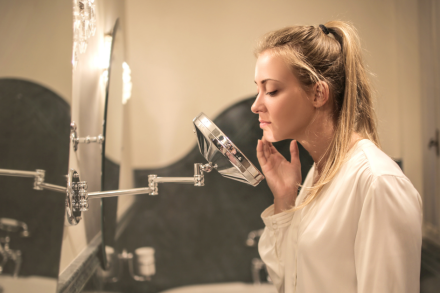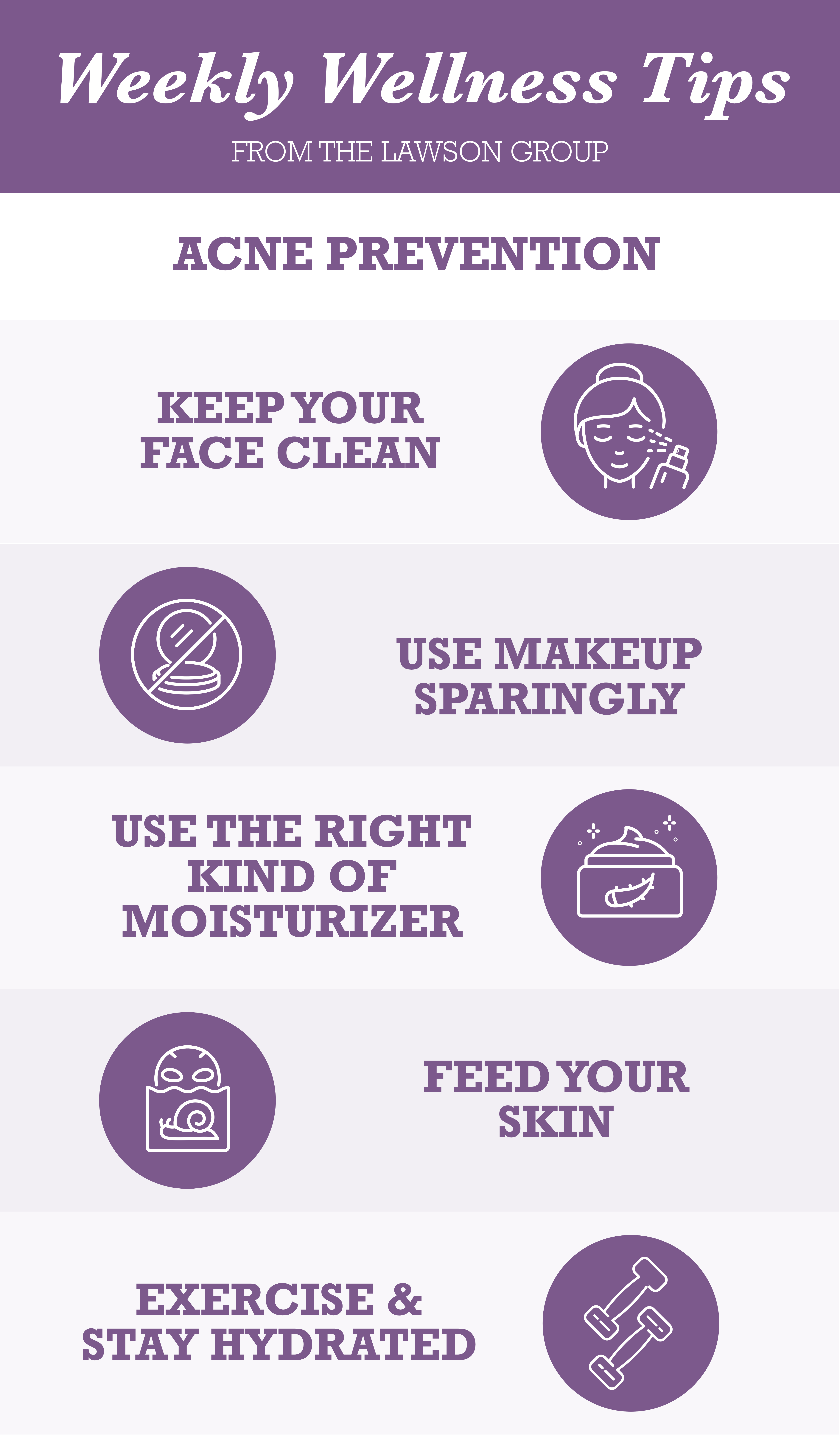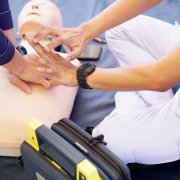
A small bump may play a big part in a person’s self-esteem. Not to mention, acne can be painful and made worse by any number of factors, including a person’s activity levels, hygiene, diet, and more. Here are a few tips on what you can do to reduce the risk of an outbreak.
For your convenience, you can download the printer-friendly version of this post here.
Keep Your Face Clean
It’s important to wash your face twice daily to remove impurities, dead skin cells, and extra oil from your skin’s surface. Use warm, not hot, water and a mild facial cleanser to gently wash with your hands or a soft cloth.
Moisturize
Many acne products contain ingredients that dry the skin, so always use a moisturizer that minimizes dryness and skin peeling. Look for “noncomedogenic” on the label, which means it should not cause acne.
Try an Over-the-Counter Acne Product
They may have ingredients such as benzoyl peroxide and salicylic acid, which curb bacteria and dry your skin. Start with a small amount at first. Adjust how much you use and how often, depending on how much drying you have.
Use Makeup Sparingly
During a breakout, avoid wearing foundation, powder, or blush. If you do wear makeup, wash it off at the end of the day.
Watch What You Put On Your Hair
Avoid fragrances, oils, pomades, or gels on your hair. If they get on your face, they can block your skin’s pores and irritate your skin.
Keep Your Hands Off Your Face
Avoid touching your face or propping your cheek or chin on your hands. Not only can you spread bacteria, but you can also irritate the already inflamed facial skin. This also goes for anything you touch and then might bring into contact with your face, like your cellphone and even your pillowcases. Make sure to keep these areas disinfected and clean.
Stay Out of the Sun
The sun’s ultraviolet rays can increase inflammation and redness. Some acne medications may make your skin more sensitive to sunlight.
Feed Your Skin
Most experts agree that certain foods, like chocolate, don’t cause pimples. Still, it makes sense to avoid greasy food and junk food and add more fresh fruits and vegetables and whole grains to your diet.
Exercise Daily
Regular exercise is good for your whole body, including your skin. When you exercise, avoid wearing clothing or using exercise equipment that rubs your skin and may cause irritation.







